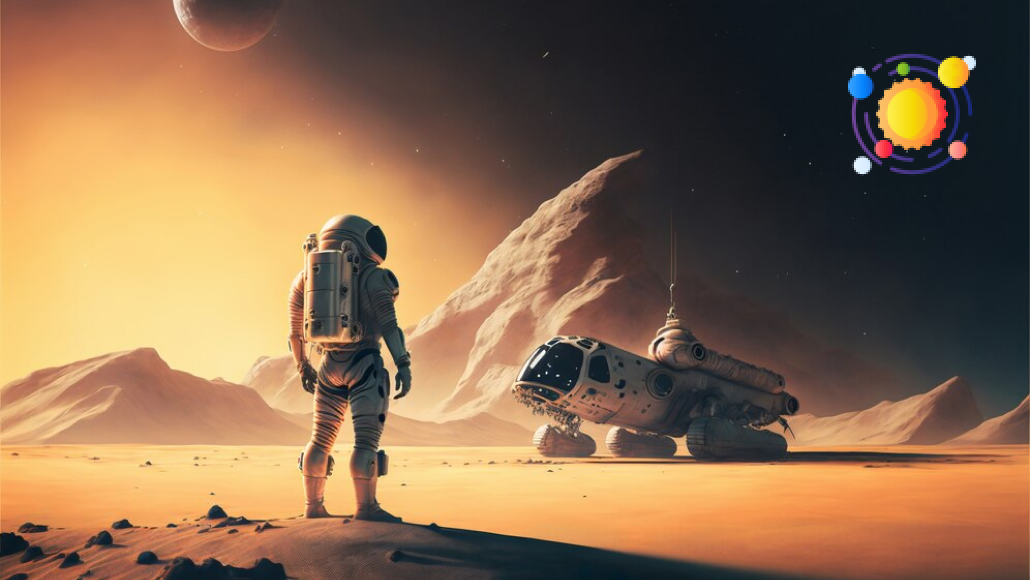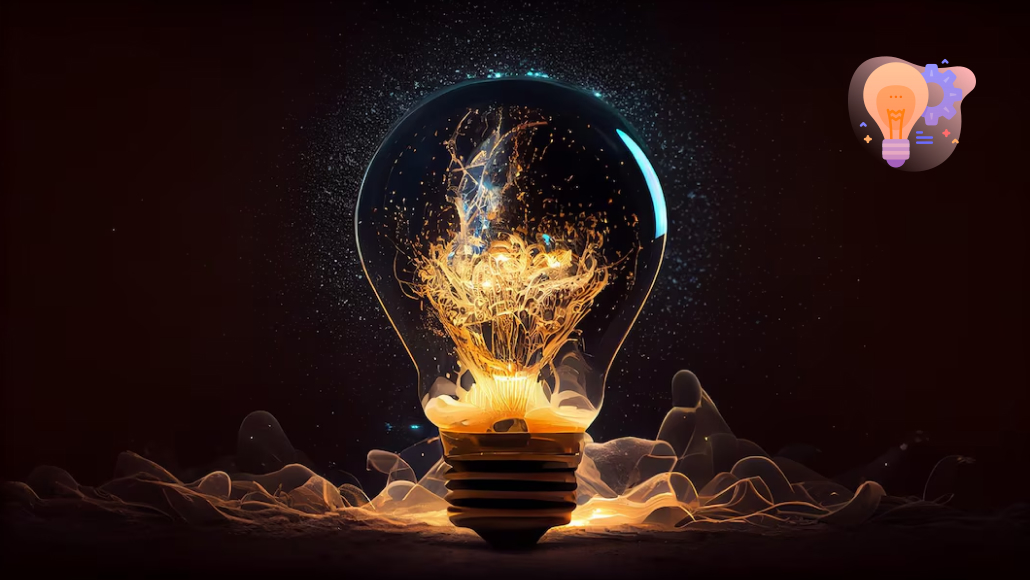Program Overview
Welcome to Schoolville STEAM Training Program "Innovate & Inspire: The Future Through STEAM," Schoolville's premier Science, Technology, Engineering, Arts, and Mathematics (STEAM) program. Designed for curious minds of all ages, this program aims to cultivate innovation, creativity, and critical thinking through an interdisciplinary approach to learning. Whether you're a student looking to explore new horizons, a professional seeking to expand your skillset, or a lifelong learner eager to engage with the wonders of STEAM, this program offers something for everyone.
Participants will embark on a Schoolville STEAM journey, starting with foundational concepts and advancing to complex applications. The program emphasizes collaboration, innovation, and critical thinking, with participants working on projects that address global challenges.
Cohort Q1, 2025
Program Start and End Date: Saturday, January 11, to Saturday, March 29, 2025.
Day: Saturday ONLY
Time: 12noon to 5pm
Cohort Q2, 2025
Program Start and End Date: Saturday, April 5, to Saturday, June 28, 2025.
Day: Saturday ONLY
Time: 12noon to 5pm
Cohort Q3, 2025
Program Start and End Date: Saturday, July 5, to Saturday, September 27, 2025.
Day: Saturday ONLY
Time: 12noon to 5pm
Cohort Q4, 2025
Program Start and End Date: Saturday, October 4, to Saturday, December 29, 2025.
Day: Saturday ONLY
Time: 12noon to 5pm
Schoolville STEAM Training Program "Innovate & Inspire" offers a comprehensive exploration of STEAM fields through hands-on projects, collaborative workshops, and interactive lessons led by industry experts and passionate instructors. Our curriculum bridges the gap between theory and practice, encouraging participants to solve real-world problems while fostering a love for learning and discovery.
- 12 Weeks
- 1 Session per Week (Saturday)
- 5 Hours per Session
Training Delivery Format: In-Person/On-Site
Duration: 12 Weeks 60 Hours (1 Session per Week, 5 Hours per Session)
Day: Saturday Only
Time: 12 Noon - 5pm
Training Delivery Format: Remote/On-line
Duration: 12 Weeks 60 Hours (1 Session per Week, 5 Hours per Session)
Day: Saturday Only
Time: 12 Noon - 6pm
Program Structure:
- Number of Modules: 5 (One for each STEAM component)
- STEAM Basic, STEAM Intermediate and STEAM Advanced
- Format: Blended (In-person project-based learning and online lessons)
Participants will:
- Develop a deep understanding of STEAM principles and their real-world applications.
- Enhance problem-solving, critical thinking, and creative skills.
- Complete individual and group projects that demonstrate their ability to apply STEAM knowledge.
- Gain exposure to cutting-edge technologies and methodologies in STEAM fields.
- Build confidence in their ability to innovate and create within interdisciplinary teams.
Module 1: Science
- Exploration of the scientific method and its application in real-life scenarios.
- Interactive experiments in physics, chemistry, and biology.
Module 2: Technology
- Introduction to coding, app development, and digital literacy.
- Workshops on emerging technologies such as AI and IoT.
Module 3: Engineering
- Basics of engineering design and problem-solving.
- Hands-on projects involving robotics, electronics, and mechanics.
Module 4: Arts
- Exploring the intersection of arts and technology through digital design, music technology, video editing and more.
- Creative projects that encourage innovative thinking and design.
Module 5: Mathematics
- Practical applications of mathematics in coding, engineering, and design.
- Fun and engaging math challenges to enhance analytical skills.
Program Price:
- Standard Price: N300,000
- Basic Skills Level (BSL) = N100,000
- Intermediate Skills Level (ISL) = N120,000
- Advanced Skills Level (ISL) = N130,000
Program Prerequisites:
- Open to participants of all ages and backgrounds.
- No prior STEAM experience required, but a willingness to learn and engage in collaborative projects is essential.
"Innovate & Inspire" is more than a program; it's a movement towards creating a brighter future through the power of STEAM education. Join us at Schoolville to explore, learn, and transform your understanding of the world.
Schoolville Method of Assessing STEAM (Science, Technology, Engineering, Arts, and Mathematics) education effectively requires a multifaceted approach that not only evaluates the acquisition of knowledge but also the application of skills in real-world contexts, creativity, collaboration, and critical thinking. Below is our assessment method tailored for STEAM program:
Project-Based Assessments
Description: Students undertake projects that require them to apply STEAM concepts to solve real-world problems. Projects can be individual or group-based and incorporate elements from each STEAM discipline.
Assessment: Evaluation based on a score that includes criteria such as creativity, application of knowledge, teamwork, problem-solving, and presentation skills.
These assessment method in a STEAM program emphasize not just the acquisition of knowledge, but also the development of essential skills like critical thinking, creativity, and collaborative problem-solving, preparing students for future challenges and opportunities.
General Classroom Materials:
- Whiteboards and markers: For brainstorming sessions and collaborative problem-solving.
- Notebooks and art supplies: Including sketch pads, pencils, markers, crayons, and paints for creative projects.
- Computers or tablets: Essential for research, digital art, programming, and using educational software.
- Internet access: Critical for accessing online resources, tutorials, and cloud-based collaboration tools.
- Live Projector and Screen: For presentations, instructional videos, and group learning sessions.
Science Materials:
- Laboratory equipment: Beakers, test tubes, microscopes, pipettes, and safety gear for experiments.
- Specimens and samples: For observation and analysis in biology or earth science.
- DIY science kits: Covering various topics like electricity, magnetism, or simple machines.
Technology and Engineering Materials:
- Programming software: Scratch, Python, or Arduino IDE for coding activities.
- Robotics kits: For building and programming robots.
- Electronic components: Including breadboards, wires, LEDs, sensors, and motors for electronics projects.
- Building materials: Legos, K'NEX, or simple materials like cardboard, straws, and tape for engineering challenges.
- 3D printers and materials: For design and prototyping projects.
Arts Materials:
- Digital arts software: Programs using Adobe Creative Suite for graphic design, digital painting, and video editing.
- Craft supplies: clay, fabric, yarn, beads, and recyclable materials for mixed media art projects.
- Musical instruments: Including traditional instruments and digital music production tools.
Mathematics Materials:
- Math manipulatives: Blocks, shapes, and counting beads to visualize and solve problems.
- Graphing calculators: For higher-level mathematics and plotting functions.
- Mathematics software: GeoGebra or MATLAB for advanced exploration and visualization.
Cross-Disciplinary and Collaborative Tools:
- Collaboration software: Like Google Workspace or Microsoft Teams for group projects and communication.
- Interactive learning platforms: Websites and apps that offer STEAM-based games and activities
Weekly STEAM Program Schedule
Science Day
- Interactive lessons on "The Scientific Method" followed by hands-on experiments in small groups, demonstrating basic principles in chemistry and physics.
- Field trip to a local science museum or laboratory to see real-world applications of scientific concepts.
Technology & Engineering Day
- Introduction to coding using Scratch or Python, focusing on creating simple programs that solve mathematical problems or create animations.
- Engineering challenge where students design and build a structure using LEGO or K'NEX that can withstand a specific weight.
Arts Integration Day
- Workshop on digital art creation, using tablets or computers to design artwork that incorporates elements of mathematics (e.g., fractals, symmetry).
- Music and mathematics session exploring patterns, rhythms, and sequences in music composition.
Mathematics Day
- Math puzzles and games that encourage logical thinking and problem-solving, followed by a workshop on applying math in everyday contexts.
- Introduction to geometry in art and nature, including a hands-on activity creating geometric art pieces.
Project-Based Learning & Collaboration Day
- Students work in interdisciplinary teams on a week-long project that integrates concepts from the STEAM disciplines explored earlier in the week. Projects might include designing a simple app, creating a multimedia art installation, or developing a science fair experiment.
Additional Program Elements:
- Students reflect on their learning experiences through journaling or group discussions, emphasizing cross-disciplinary connections.
- Guest Speaker Series (once a week, time TBD): Professionals from various STEAM fields present their work, offering insights into career paths and real-world applications of STEAM education.
- End-of-Program Showcase: On the last day of the program, students present their projects to peers, parents, and community members, demonstrating their interdisciplinary knowledge and collaboration skills.
Instructors and Facilitators
Our instructors in Schoolville STEAM programs are professionals with expertise in one or more STEAM fields. They include teachers with STEAM backgrounds, artists, engineers, scientists, or technology experts.


